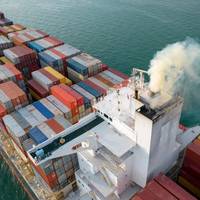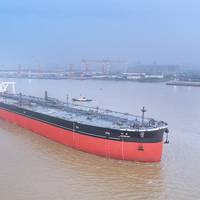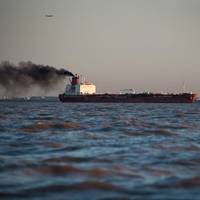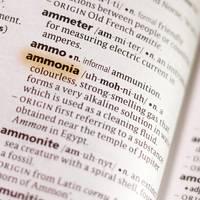Countries Adopt New Shipping Greenhouse Gas Emissions Target

Countries on Friday adopted a revised greenhouse gas (GHG) strategy for shipping that sets a net zero emissions target "by or around 2050", which was viewed by environmental groups as falling short of what was needed. After days of discussion in London at U.N. shipping agency the International Maritime Organization’s (IMO) headquarters, member countries agreed to reach net zero "by or around, i.e., close to 2050, taking into account different national circumstances". Countries…
NYK VLCC Tateshina Designed to Be 23% More Energy Efficient

The very large crude oil carrier (VLCC) Tateshina, owned by NYK, was delivered on November 8, 2021, built at Nantong COSCO KHI Engineering Co., Ltd. (NACKS) in China.According to the owner, several enhancements have been incorporated on Tateshina to help improve performance and fuel efficiency and reduce emissions, including a modified bow shape to help reduce wave resistance. This ship is also equipped low-friction paint, high-efficiency large-diameter propellers, and ladder fins that regulate the water flow at the stern and reduce energy loss.
Shipping Industry Proposes Levy to Accelerate Zero Carbon Future

Leading shipping associations have proposed creating a global levy on carbon emissions from ships to help speed up the industry's efforts to go greener.With about 90% of world trade transported by sea, global shipping accounts for nearly 3% of the world's CO2 emissions and the sector is under growing pressure to get cleaner.For the first time, the International Chamber of Shipping (ICS) and Intercargo jointly proposed a levy based on mandatory contributions by ships trading globally…
Yara Joins Study on Ammonia as Ship's Fuel

NYK Line, Nihon Shipyard Co. Ltd. (Nihon Shipyard), and Nippon Kaiji Kyokai (ClassNK) signed an MOU with Yara International (Yara) to jointly study the practical application of an ammonia-fueled ammonia gas carrier (AFAGC) that uses ammonia as its main fuel.Carbon dioxide (CO2) is not emitted when ammonia is burned, so it is viewed to have promise as a next-generation fuel that could mitigate shipping’s impact on global warming. In addition, it is said that zero emissions can be realized by utilizing CO2-free hydrogen as a raw material for ammonia.

